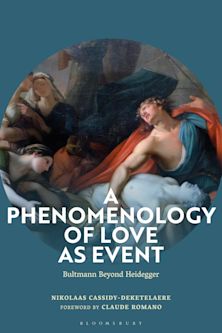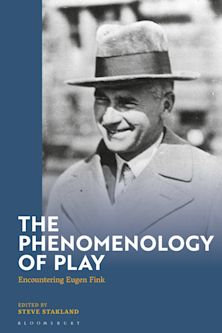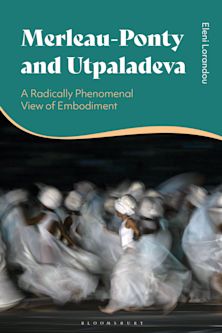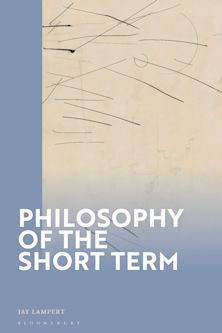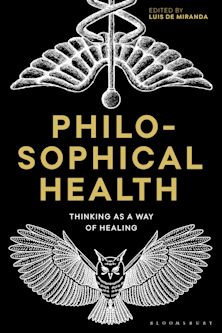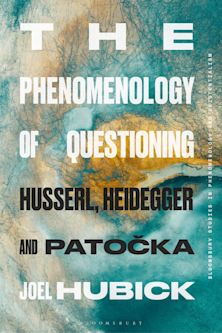- Home
- ACADEMIC
- Philosophy
- Phenomenology
- Time and Trauma
Time and Trauma
Thinking Through Heidegger in the Thirties
Time and Trauma
Thinking Through Heidegger in the Thirties
This product is usually dispatched within 3 days
- Delivery and returns info
-
Free CA delivery on orders $40 or over
You must sign in to add this item to your wishlist. Please sign in or create an account
Description
In this important new book, Richard Polt takes a fresh approach to Heidegger’s thought during his most politicized period, and works toward a philosophical appropriation of his most valuable ideas. Polt shows how central themes of the 1930s—such as inception, emergency, and the question “Who are we?”—grow from seeds planted in Being and Time and are woven into Heidegger’s political thought. Working with recently published texts, including Heidegger’s Black Notebooks, Polt traces the thinker’s engagement and disengagement from the Nazi movement. He critiques Heidegger for his failure to understand the political realm, but also draws on his ideas to propose a “traumatic ontology” that understands individual and collective existence as identities that are always in question, and always remain exposed to disruptive events. Time and Trauma is a bold attempt to gain philosophical insight from the most problematic and controversial phase of Heidegger’s thought.
Table of Contents
Product details
| Published | Jan 31 2019 |
|---|---|
| Format | Paperback |
| Edition | 1st |
| Extent | 302 |
| ISBN | 9781786610508 |
| Imprint | Rowman & Littlefield Publishers |
| Dimensions | 223 x 151 mm |
| Series | New Heidegger Research |
| Publisher | Bloomsbury Publishing |
About the contributors
Reviews
-
Polt’s threefold interpretation of “thinking through” proves to be a useful catalyst not just for understanding Heidegger, but for understanding our roles as philosophers who exist in a world after Heidegger. His approach is deeply Heideggerian, in that it echoes the way early Heidegger thought through the problems
present in the history of philosophy, but it is also something new, in that it takes a daring step beyond Heidegger, into what Polt calls “traumatic ontology”.History of Science Society
-
For this reader, the value of Time and Trauma lies in the painstaking and judicious tracing of the 1930s Heidegger. Polt accomplishes an amazing balancing act, charitable and properly philosophical in understanding from within Heidegger’s own thought the connections to National Socialism, but not mincing words when it comes to Heidegger’s underhanded manipulations of language and ontology that, depending on the moment, provide support to National Socialism or excuse Heidegger for having provided that support.
German Studies Review
-
Richard Polt’s book is so much more than another academic interpretation of Heidegger; it is an original work of thinking through the disintegrating fabric of our world. A masterful achievement by one of the leading Continental philosophers in the United States!
Michael Marder, Research Professor in the Department of Philosophy at the University of the Basque Country, Spain
-
Polt’s reading of Heidegger is a meticulous, original, and admirably nuanced reconstruction and critique of Heidegger’s ill-fated engagement with the political. The question ‘who are we?’ leads Polt to a judicious recovery of the political and toward a ‘traumatic ontology’ that promises to transform the question of being from one of understanding to one of the ‘emergency of being’.
Reginald Lilly, Professor of Philosophy, Skidmore College
-
In this ambitious and thought-provoking study, Polt undertakes a reassessment of the ethical and political dimensions of Heidegger's thought, with particular focus on the work of the 1930s. He not only presents a comprehensive and judicious account of Heidegger's problematic complicity with National Socialism, but seeks to retrieve an Arendtian-inspired understanding of action that would avoid the most problematic excesses of Heidegger's later thought, an understanding grounded in what he calls a "traumatic ontology". This book will be essential reading not only for those interested in Heidegger and the political, but for anyone attempting to understand what is at stake in the turn from his early fundamental ontology to the work of the 1930s and beyond.
William McNeill, Professor of Philosophy, DePaul University
-
Polt once defined philosophy as "asking questions beyond the point where questioning usually stops." This volume lives up to that ideal and then takes it a step further. Like Heidegger himself, Polt intentionally raises more questions than he answers -- which makes the book an invitation to question yet further and to think outside the parameters of received Heideggerian wisdom, including the impressive and laudable wisdom of this volume. Some readers will feel strongly drawn to the second and third chapters, which provide (1) a devastating critique of Heidegger's politics under Nazism, including brilliant summaries of six of his courses during the 1930s as well as an astute reading of his "Black Notebooks," and (2) a constructive Arendtian reading of the political, both in light of and against Heidegger.
Notre Dame Philosophical Reviews

ONLINE RESOURCES
Bloomsbury Collections
This book is available on Bloomsbury Collections where your library has access.















